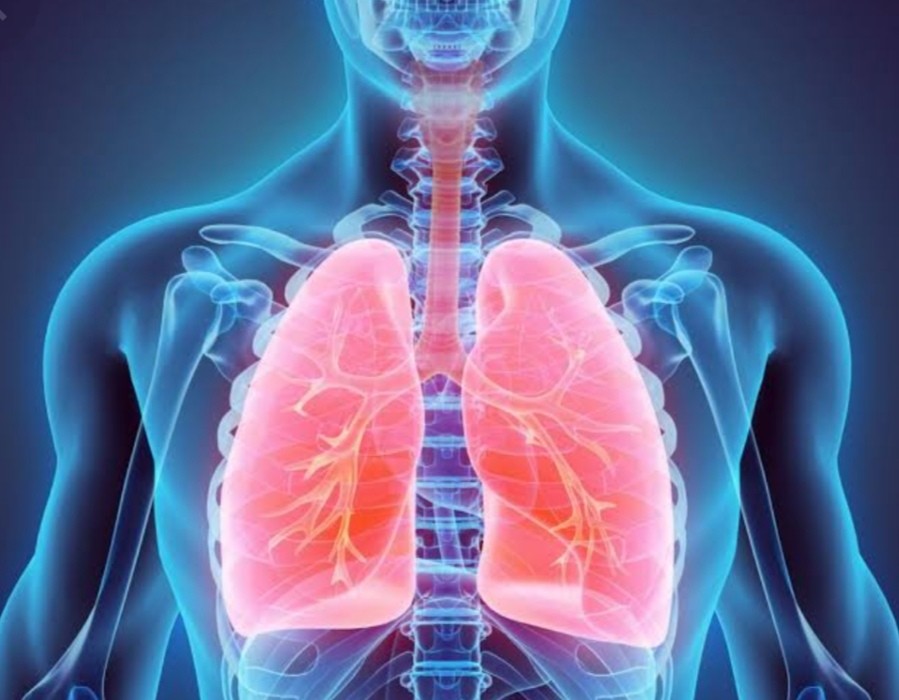Published - Thu, 06 Oct 2022

Non-cardiogenic Pulmonary Edema (NCPE)
Non-cardiogenic pulmonary edema (NCPE) is also known as acute respiratory distress syndrome. NCPE is a form of pulmonary edema resulting from an abnormal increase in the permeability of pulmonary vascular membranes.
CAUSES of NCPE include sepsis, aspiration of gastric contents, near-drowning, thermal injury, trauma, high-altitude pulmonary edema, radiation, transfusions, eclampsia–preeclampsia, and selected drug reactions or overdoses, including narcotic and aspirin overdose.
PATHOGENESIS: Cardiovascular, hydrostatic, or hemodynamic edema is unrelated to NCPE. The proposed mechanism for the edema is damage to the vascular endothelium as a result of complement cascade activation or direct damage by bacterial endotoxin. Pulmonary surfactant is disrupted and lung compliance is decreased.
CLINICAL FEATURES
1. Symptoms: Tachypnea that progresses quickly with dyspnea is common.
2. Physical examination findings include bilateral rales.
DIFFERENTIAL DIAGNOSES
Most frequently, NCPE is confused with pneumonia or CHF. Asthma, COPD, pulmonary embolism, an anaphylactic reaction, and foreign body aspiration should also be considered.
EVALUATION
1. Chest radiographs, ABGs, and an ECG should be obtained for all patients suspected of having NCPE.
a) The chest radiograph shows a normal-sized heart and bilateral patchy alveolar infiltrates. In extreme situations, the infiltrates could cause the lungs to "white out.”
b) The ABG demonstrates hypoxia and an increased alveolar-arterial gradient where PaO2/FIO2 is less than 300.
2. Laboratory tests: Pertinent laboratory tests include a complete blood count (CBC), urinalysis, an electrolyte panel, and blood urea nitrogen (BUN) and creatinine levels.
THERAPY
1. To keep the oxygen saturation level above 90%, more oxygen should be given. In intubated patients, the FIO2 should be kept below 50%, if possible, because of the potential for pulmonary oxygen toxicity.
2. Intubation and mechanical ventilation are indicated for patients who, despite supplemental oxygen, have inadequate oxygenation or ventilation. PEEP should be added if adequate oxygenation cannot be maintained with an FIO2 of less than 50% to keep tidal volumes low at < 6 mL/kg.
3. Treatment of the underlying disorder should be undertaken (e.g., antibiotics for sepsis, alkalinization, and dialysis for aspirin overdose).
4. The use of corticosteroids, non-steroidal anti-inflammatory drugs, and anticoagulants is being investigated for the future treatment of acute respiratory distress syndrome.
DISPOSITION
1. Admission: The vast majority of patients with NCPE will need to be admitted to the hospital and should be sent to a monitored bed.
a) Many patients who develop NCPE do so as a result of medical conditions that often require hospitalization in and of themselves (e.g., sepsis, near drowning, thermal injury, trauma, aspirin overdose).
b) Patients' respiratory conditions may quickly deteriorate and NCPE may worsen quickly. Patients who are intubated or seriously unwell must be admitted to the ICU.
2. Discharge: Overdose patients who are not hypoxic and are asymptomatic after 6 to 12 hours of observation are usually discharged home.
Created by
Rigomo Team
Rigomo is a leading online education platform that offers a wide range of courses to help individuals enhance their skills and achieve their career goals. With our user-friendly interface and expert instructors, we strive to provide high-quality education to everyone, anytime and anywhere. Join us today and take the first step towards a brighter future.
Rigomo is an e-learning platform that was founded in 2019 by a team of dedicated professionals with a passion for revolutionizing the way people learn. The platform offers a range of online courses that cover various industries, including business, technology, healthcare, and more.
Rigomo's courses are designed to be interactive and engaging, with a focus on practical skills that learners can apply in their careers. The platform uses a combination of video lectures, quizzes, and hands-on projects to help learners master the subject matter.
Rigomo is committed to providing affordable and accessible education to people around the world. The platform offers a range of pricing options, including monthly and annual subscriptions, as well as pay-as-you-go options for individual courses.
Since its launch, Rigomo has received numerous accolades for its innovative approach to e-learning. The platform has helped thousands of learners across the globe acquire new skills and advance their careers.
As Rigomo continues to grow, the team remains committed to providing high-quality education that is accessible to all. The platform is constantly updating its courses and features to ensure that learners have access to the latest tools and technologies.
Comments (0)
Search
Popular categories
Health and Wellness
231Skill Development
7Technology
5Community Impact
2Success story
2Creativity
1Latest blogs

DeepSchool: The Story of an Idea That Refused to Sit Still
Tue, 02 Dec 2025

Transforming Emergency Care: The Story Behind Rigomo's Revolutionary PPMMP Course
Sun, 12 May 2024

Empowering Rural Healthcare: How Pogiko's AI is Bridging the Gap in Medical Services
Thu, 25 Apr 2024

Write a public review